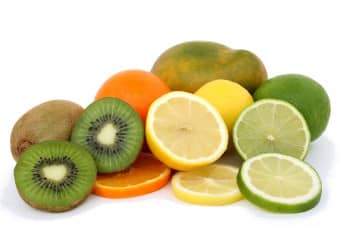This article provides information on allergy drugs or allergy meds along with anti-allergy herbal medicine and fruits. For those perennially beset by allergy, this article is for you. Read on and learn from the author’s simple experiment on allergy meds that work plus a comprehensive list of anti-allergy foods. — Ed.
You subsist a notably carefree, happy life as much when you have no unsettling health and discomfort. You have no distressing perplexities with whatsoever you can physically able to do and ingest whatever your heart craves for.
What a marvellous circumstance indeed when you live an abounding life with no restraints, keeping pace with time and just carry out on one’s activities in any specified environment, when you can ingest any kinds of food unperturbed. And you can have your child free from any confinements and freely play with kids of their age.
The bugging distress intervenes erstwhile you, your kids or anyone or another member in your family was taken at a random and unfortunately be subjected or affected with a sudden ill health — an allergy. Thus, you seek to do a diligent study on the Allergy, Allergy Medicines, A Significant Experiment. Which Works Best?
I did a bit of an experiment, a research study on this aspect of the Allergy, Allergy Medicines, a Significant Experiment and Which Works Best: the store-bought medicine Virlix Cetirizine, or the Generic Medicine Cetirizine, with herbal medicine supplementation.
It’s adequately good to make a remarkable discovery, and essential findings on this field or area of study. Notably delighted was I to move with a specific purpose and end on this significant documentation of my longish research of over a year to understand allergy relief medicine.
But first, let me list how allergies affect us and where allergies originate in the next section.
Effect of Allergies and 12 Sources of Allergy
Allergies usually affect your skin, eyes, nose, sinuses, throat and other areas of your upper respiratory system. Eleven (11) substances cause allergy. These are called allergens originating from:
- environmental factors such as chemicals from food or secondhand smoke in public areas
- some allergenic foods that can affect your eyes, nose and skin
- certain garden pollen can somehow affect your nose or eyes
- family history of severe allergy reactions
- cold drinks that can affect your throat
- history of personal allergy reactions
- household dust
- too much heat
- insect bites
- furry pets
- termites
- asthma
How do you know if you have allergy? I list below the common symptoms people with allergies manifest.
17 Symptoms of Allergy
Allergies to some are frequently lifelong, but some outgrow it. Seventeen (17) symptoms of allergy include:
- gastrointestinal reactions like urticaria
- abdominal pain, or indigestion
- sneezing or sometimes cough
- skin rashes, redness itchiness
- scratchy eyes, swollen eyes
- laryngeal edema/diarrhea
- itching and watery eyes
- scratchy nose and skin
- or scratchy sore throat
- stuffy or a runny nose
- poor weight gain
- rhinitis, irritation
- nasal congestion
- drowsiness
- palpitation
- asthma
- fatigue
After a careful examination and analysis of this information on allergy and its symptoms, I share my own findings along this concern.
Is There a Difference in the Efficacy of Allergy Drugs or Allergy Meds?
Here are interesting findings I have gathered on this topic on my simple exploration: Allergy, Allergy Medicines, A Significant Experiment, and Which Works Best—the store bought Virlix Cetirizine medicines, or the generic medicine Cetirizine, with herbal medicine supplementation:

- Allergy Drug 1: Generic Medicine Cetirizine. Patient A ate chicken, eggs, shrimp, squid and crab dish with peanuts and a mildly rotten fish at a gathering—aside from eating eggs, chicken and nuts at home. So Patient A with food allergy takes Generic Cetirizine once a day for 3 consecutive days with negative results. Patient A proceeded taking Generic Cetirizine for 7 days with no improvements at all. Thus, the allergy worsened and further lasted for a period of another two weeks. The allergy was noticeable on the legs and spreading up on the stomach, to the left eyebrow after a couple of days. Patient A was healed but pretty much longer. It took 3 weeks. She then proceeded with Water Therapy and Herbal Medicines as preventive measures.
- Allergy Drug 2: Drugstore Bought Virlix (Cetirizine) Medicine. Patient B likewise ate chicken, eggs, shrimp, squid and crab dish with peanuts and a mildly rotten fish at the same gathering—aside from eating eggs, chicken and peanut butter at home. Patient B with food allergy takes the Generic Medicine Cetirizine for 3 consecutive days, and then took the store-bought medicine Virlix cetirizine on the 4th day. The allergy on the legs, stomach and eyes gradually stopped spreading this time on the 4th day right after taking Virlix medicine. The redness stops, some of the itchiness also was gone, the swollen eyelid noticeably shrank and she could see better now. Patient B took another Virlix on the 5th and on the 6th days. She was finally cured on the 7th day. Virlix was taken along with water therapy and herbal medicines on the 4th day and beyond for preventive measures in the long run to obstruct the recurring allergy. “Prevention is truly better than cure.”
- Herbal Medicine Supplementation. The intake of herbal medicines as allergy prevention measures are all rich in Vitamin C. Garlic contains quercetin which is a plant-based bioflavonoid with anti-inflammatory effects. It normalizes cells and has anti-histamine properties. It is a great antioxidant too. Quercetin is a natural plant chemical which reduces histamine reactions or allergy found in garlic, peppers, berries and parsley. Pineapple has an essential enzyme called bromelain which reduces inflammation caused by histamine reaction or allergy in the skin, eyes, nasal and sinus cavities. Kiwi, oranges and other citrus fruits are highly rich in Vitamin C which cut down on histamine reactions. Kefir Yogurt contains probiotics that reduces allergies and even treats seasonal allergies. Local honey has anti-allergenic properties and a great antioxidant. Mackerel, salmon and tuna have enormous amounts of omega-3 fatty acids which reduce inflammation. A study in Japan found women who ate more fish had lower levels of hay fever or allergic rhinitis. Please see the detailed list of herbal medicine that prevent allergy from recurring below.

31 Herbal Medicine for Allergy
The list below details 31 Vitamin C Vegan and Herbs Diet as a preventive measure for allergy—foods that naturally fight allergy.
- Teas. Ginger (Zingiber officinale) or ginger tea, eucalyptus tea, green tea, Japanese matcha tea. Matcha tea has a powerful antioxidant and even blocks production of allergies. You can mix eucalyptus oil with coco oil then rub it on your chest, head, behind your ears and diffuse it on the air during the day or at bedtime. Or you may also soak yourself for a nice herbal bath—ginger and orange blossom bath treatment for asthma, sinus, and allergy. Just mix 1/4 cup of freshly grated ginger, 1 teaspoon of turmeric, 5 drops of orange blossoms, 1 chamomile tea bag, 1 tablespoon of cinnamon.
- Red and green bell pepper (Capsicum annuum). Also cayenne pepper and jalapeno
- Scallions or spring onion leaves (Allium wakegi/Allium bakeri Regel)
- Thyme (Thymus vulgaris) contains 3x more Vitamin C than oranges
- Swiss Chard or Perpetual spinach (Beta vulgaris)
- Mustard spinach (Brassica rapa var. Pervirdis)
- Lady finger or okra (Mammillaria elongata)
- Moringa or malunggay (Moringa oleifera)
- Turmeric (Curcuma longa), or turmeric tea
- Dandelion greens (Taraxacum officinale)
- Rutabaga root veggies (Brassica napus)
- Brocolli (Brassica oleracea var. Botrytis)
- Spinach or alugbati (Spinacia oleracea)
- Leeks leafy vegetable (Allium porrum)
- Kale (Brassica oleracea ssp. acephala)
- Tomatoes (Lycopersicon esculentum)
- Turnips root veggies (Brassica rapa)
- Collard greens (Brassica oleracea)
- Fennel herb (Foeniculum vulgare)
- Asparagus (Asparagus officinalis)
- Parsley (Petroselinum crispum)
- Potatoes (Solanum tubersum)
- Artichokes (Scolymus cynara)
- Black Pepper (Piper nigrum)
- Green peas (Pisum sativum)
- Cucumber (Cucumis sativas)
- Chayote (Sechium edule)
- Basil (Ocinum basilicum)
- Celery (Udea rubigalis)
- Garlic (Allium sativum)
- Onion (Allium cepa)
31 Vitamin C Fruits: Diet to Prevent Allergy
The following anti-allergy fruits are an excellent part of your diet that should always grace your table. Make an effort to buy any or a combination of these fruits and enjoy their health benefits.
- Grapes (Vitis vinifera) and raisin a dried fruit variety of grapes
- Mangosteen (Garcinia mangostana) fruit, or mangosteen tea
- Banana (Musa acuminata or Musa balbisiana/paradisicum)
- Soursop Guyabano (Annona muricata linnaeus)
- Pineapple (Ananas sativus or Ananas comosus)
- Java plum or duhat (Syszygium jambolanum)
- Cranberries (Vaccinnium macrocarpon aiton)
- Au kakadu plum (Terminalia ferdinandiana)
- Noseberry or chicos (Manilkara zapota)
- Jackfruit (Artocarpus heterophyllus)
- Rambutan (Nephelium lappaceum)
- Blueberries (Vaccinium caesariense)
- Star apple (Chrysophyllum cainito)
- Sweet Mango (Mangifera indica)
- Lansones (Lansium domesticum)
- Strawberries (Fragaria ananassa)
- Pomegranate (Punica granatum)
- Black currants (Ribes nigrum)
- Kiwi Fruit (Actinidia deliciosa)
- Avocado (Persea americana)
- Dalandan (Citrus aurantium)
- Grapefruit (Citrus paradisi)
- Apple (Malus domestica)
- Oranges (Citrus sinensis)
- Guava (Psidium guajava)
- Papayas (Carica papaya)
- Lychee (Litchi chinensis)
- Pomelo (Citrus maxima)
- Cherries (Prunus avium)
- Pears (Pyrus calleryana)
- Lemon (Citrus limon)
14 Foods to Avoid Allergy
At the onset of mediated food allergy, normally found within just a few minutes to 2 hours, here are 14 foods that you should avoid:
- All nuts. Almond, cashew, peanuts, macadamia, hazelnuts, walnuts, chestnuts, pistachio.
- Sea creatures like crab, shrimp, squid, seashells or shellfish
- Melons like honeydew and cantaloupe
- Beans like red beans, mongo beans
- Veggies like zucchini
- Dried Fish or bulad
- Expired can goods
- Brown Chocolates
- Chicken and eggs
- Red salted Eggs
- Peanutbutter
- Rotten fish
- Eggplant
- Carrots
Additional Recommendations to Fight Allergy
- Virlix (cetirizine) is an antihistamine that blocks the actions of the naturally occurring chemical histamine in your body. It is used to treat symptoms of allergies like sneezing, runny nose, skin itching, nose itching, watery eyes, red eyes, swollen eyelids, hives, perennial allergic rhinitis, seasonal allergic rhinitis, allergic asthma, food allergy, and a lot more.
- The only proven ways on the food allergy management is having natural fresh foods rich in Vitamin C and Vitamin E with water therapy, Omega-3 fatty acids, probiotics, a clean house and everything on it. So regular washing of tapestry to beddings to curtains to bathe towels to garments are necessary. Offending foods have to be eliminated, too.
- Garlic and onion, when eaten raw, are one of the safest, and effective remedy to relieve allergies. You may opt to have chopped garlic and onion mixed on any of your fave vegan salad, or mash them along with your mashed potato so kids can have them, too. You may even incorporate these two wonderful herbs on your homemade fruit smoothies, baked cookies and pastries, burger patties, lunch sandwich, vegan pasta, Japanese sushi, hummus, and any dish like homemade pizza to make them more nutritious too—the secret lies in having a simple yet vibrant plating for your children who are picky eaters.
- The generic allergy drug cetirizine does not prevent allergy if you have a seasonal allergy like hay fever or an all year round allergy. Taking the recommended generic cetirizine for days only helps relieve the mild allergy symptoms but it doesn’t immediately stop them. The allergy med causes drowsiness and diarrhea so refrain from biking or driving when allergy is on the rise.
- Prolonged cooking of foods rich in Vit E, Vit C and Vitamin D highly reduces the vitamin contents in them. Vitamin C-rich foods are best consumed raw or just briskly cooked in 5 minutes. Vitamin C imminently delays the development of allergy, asthma, cancer, cardiovascular disease, thyroid, gout, cyst, prostatitis, diabetes, high blood pressure, cataracts, common cough and colds and a lot more.
Helpful Bible Verses to Ease Allergy Problems
Behold, I will bring to it health and healing, and I will heal them; and I will reveal to them an abundance of peace and truth.
Jeremiah 33: 6
He heals the brokenhearted And binds up their wounds.
Psalm 147: 3
Yet it is I who taught Ephraim to walk, I took them in My arms; But they did not know that I healed them.
Hosea 11: 3
See now that I, I am He, And there is no god besides Me; It is I who put to death and give life. I have wounded, and it is I who heal, And there is no one who can deliver from My hand.
Deuteronomy 32: 39
Heal me, O LORD, and I will be healed; Save me and I will be saved, For You are my praise.
Jeremiah 17: 14
References
Clevaland Clinic (2020). Allergies: Types, Symptoms, Causes & Treatments. Retrieved 6 May 2022, from https://my.clevelandclinic.org/health/diseases/8610-allergy-overview
Gordon, B. R. (2011). The allergic march: can we prevent allergies and asthma?. Oto laryngologic clinics of North America, 44 (3), 765-777.
Nagel, G., Weinmayr, G., Kleiner, A., Garcia-Marcos, L., Strachan, D. P., & ISAAC Phase Two Study Group. (2010). Effect of diet on asthma and allergic sensitisation in the International Study on Allergies and Asthma in Childhood (ISAAC) Phase Two. Thorax, 65(6), 516-522.
Wang, J., & Liu, A. H. (2011). Food allergies and asthma. Current opinion in allergy and clinical immunology, 11(3), 249.
[cite]



